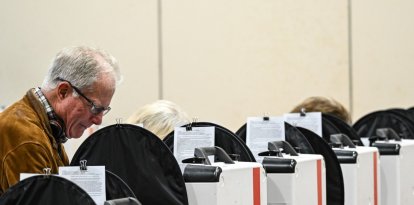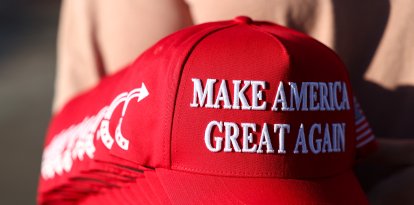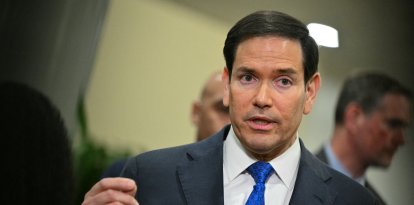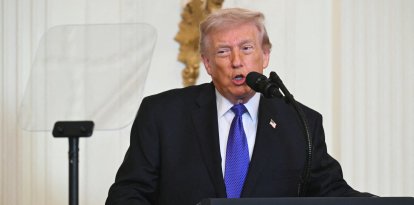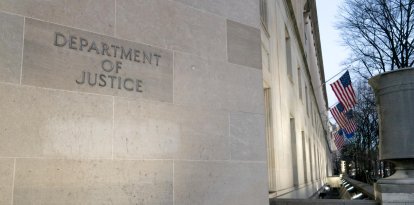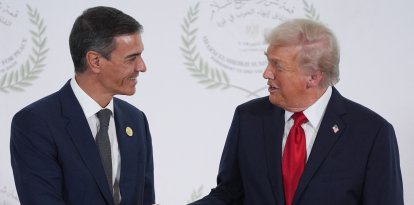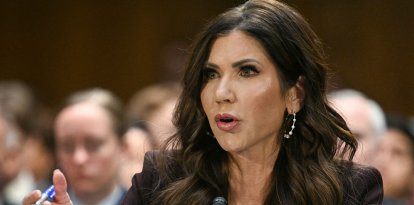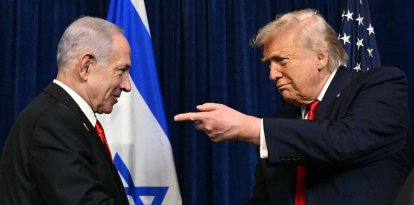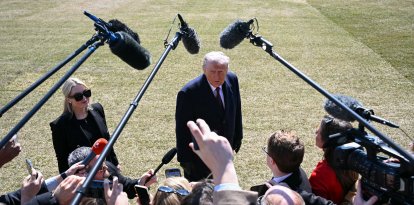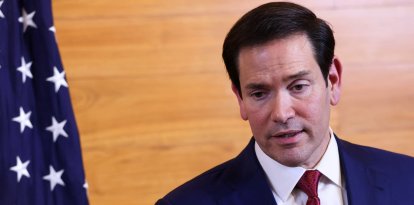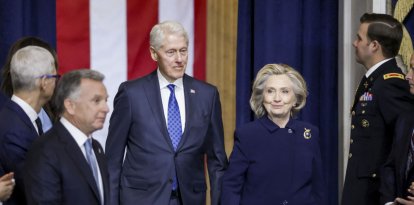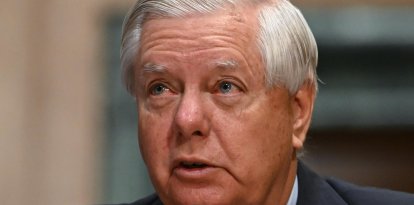A New York judge rejects Trump's proposed extension and sets his first criminal trial for April 15
The Republican's legal team was looking to delay the trial until the Supreme Court ruled whether or not their client had presidential immunity at the time.
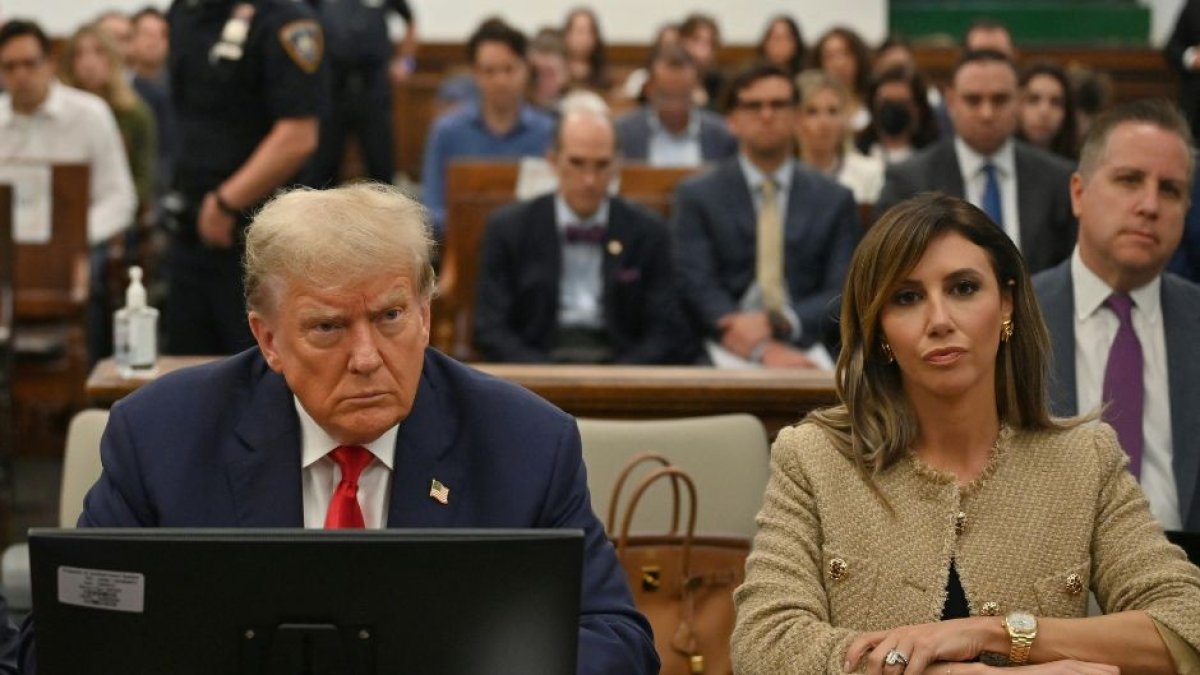
ANGELA WEISS / POOL / AFP)
Donald Trump received another judicial setback from Judge Juan Merchan of New York. After expanding the gag order against the former president, the judge rejected the latest attempt to delay the trial and set the start date for April 15. The Republican’s legal team had proposed extending the case until the Supreme Court of Justice rules on the question of presidential immunity.
In this case, Prosecutor Alvin Bragg accused Trump of criminally concealing a payment related to the 2016 presidential election, an accusation to which the former president pleaded not guilty.
Recently, the Republican’s lawyers asked the judge for an extension until the country’s highest court ruled whether their client was immune from prosecution on charges related to official acts he performed while he was president. Although the Court is expected to hear oral arguments in April, the ruling will come out mid-June.
Merchan rejected the request, claiming that the delay request was “untimely” and that it was not requested within the legal deadline.
“Defendant’s motion is DENIED in its entirety as untimely. The Court declines to consider whether the doctrine of presidential immunity precludes the introduction of evidence of purported official presidential acts in a criminal proceeding,” the judge wrote.
However, Trump still has one more card to play to delay the trial’s start based on “harmful publicity.”
According to this legal theory, pretrial publicity contrary to the accused can inherently bias jurors’ opinions, thus increasing the chances of a guilty verdict and violating the Sixth Amendment.
The case of Trump, Alvin Bragg and Judge Merchan
The case involves an alleged payment made by Trump’s former lawyer, Michael Cohen. The lawyer allegedly sent $130,000 to actress Stormy Daniels during the 2016 campaign, intending to silence an alleged date between Trump and the actress in 2006. The crime would be to allegedly disguise that payment as a legal expense, and the investigation is being carried out by the Manhattan district attorney, Alvin Bragg.
According to the prosecutor’s version, Trump, or his trust, paid $420,000 to his former lawyer, including $130,000 for the payment and $50,000 for the digital work that Cohen did for Trump. The $180,000 was supposedly doubled to offset taxes, and the remaining $60,000 was a “bonus.”
Although confidentiality agreements are legal, the problem lies in how his company reimbursed Cohen. The payment was listed as a legal expense, and the company claimed to have an alleged confidentiality agreement with Cohen. According to the prosecutor, no such agreement existed, and the cost was not related to any legal services by the attorney, potentially establishing a misdemeanor charge of falsifying business records. According to Bragg, Trump personally signed several of the checks to Cohen while he was president.
The prosecutor’s Office can raise the misdemeanor to a felony but would have to prove that Trump had an “intent to defraud,” which would set the stage for a second offense. Precisely, this second crime would imply that the payment of $130,000 was an improper donation to Trump’s campaign because the money was allegedly used to stop the story with the purpose of benefiting his presidential campaign.













